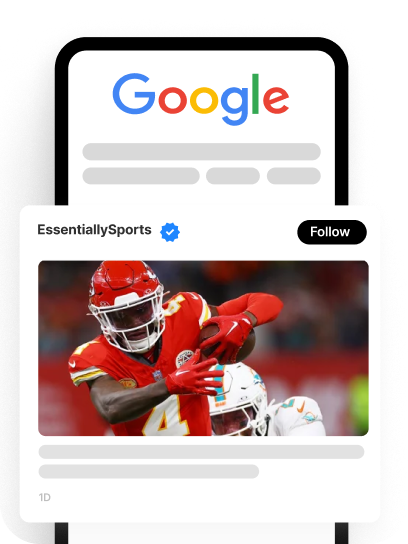
Imago
NCAA, College League, USA Football: SEC Media Days Jul 15, 2024 Dallas, TX, USA Vanderbilt head coach Clark Lea speaking at Omni Dallas Hotel. , EDITORIAL USE ONLY PUBLICATIONxINxGERxSUIxAUTxONLY Copyright: xBrettxPatzkex 20240715_jla_uo1_126

Imago
NCAA, College League, USA Football: SEC Media Days Jul 15, 2024 Dallas, TX, USA Vanderbilt head coach Clark Lea speaking at Omni Dallas Hotel. , EDITORIAL USE ONLY PUBLICATIONxINxGERxSUIxAUTxONLY Copyright: xBrettxPatzkex 20240715_jla_uo1_126
The Auburn Tigers find themselves at another coaching crossroads. This time, the warning signs are flashing brighter than ever. As Clark Lea emerges as one of the leading candidates to replace Hugh Freeze, there’s a cautionary tale from the program’s past that could determine whether the next hire succeeds or not.
Watch What’s Trending Now!
Auburn’s coaching carousel has become one of the most expensive rides in college football. The Tigers just fired Hugh Freeze after a disappointing 15-19 record over three seasons, owing him a buyout of $15.8 million. College football analyst and former Georgia linebacker David Pollack didn’t mince words when discussing Auburn’s systemic issues. “Auburn fans, I think you’ve heard this for a while. This is why you don’t have Kirby Smart, by the way. They had a chance to get Kirby Smart,” Pollack said.
Pollack also explained the root of Auburn’s problems and hinted that the boosters hold significant power, which hinders the current programs’ needs. “Auburn fans, know this. There’s a tendency in that building for certain people to have a lot of say. And those certain people aren’t necessarily the people that you wanna listen to. Okay? And the people with the money…if I’m going to the place where those people are making football decisions, which I’m telling you, is the history at Auburn. If you talk to people that have been there, it’s the history. That’s not a good recipe for success.”
The analyst was particularly pointing to a decision that still haunts the program today. The Kirby Smart situation Pollack referenced goes back to 2012, when Auburn was searching for a head coach after firing Gene Chizik just two years removed from a national title. Smart, then Alabama’s defensive coordinator, interviewed for the position and was reportedly the favorite. But Auburn leadership balked when he made a simple request.
Kirby Smart had asked to stay with Alabama through their national championship game. This was a request Georgia later accommodated in 2015 when they hired him. With Clark Lea, one of the candidates, this is a clear warning sign.

Imago
NCAA, College League, USA Football: Mississippi at Georgia Oct 18, 2025 Athens, Georgia, USA Georgia Bulldogs head coach Kirby Smart reacts during the first half of the game against the Mississippi Rebels at Sanford Stadium. Athens Sanford Stadium Georgia USA, EDITORIAL USE ONLY PUBLICATIONxINxGERxSUIxAUTxONLY Copyright: xBrettxDavisx 20251018_ajw_ad1_088
Smart has since won two national championships with the Bulldogs and established one of college football’s premier programs. Whereas Auburn has continued to struggle with instability. The decision not to hire Smart, influenced by concerns from then-athletic director Jay Jacobs, stands as one of the program’s biggest missed opportunities. Pollack’s prescription for Auburn’s future is a message that should resonate with whoever takes the job next, whether it’s Clark Lea or another candidate.
“Auburn has to make sure that they give the coaches the opportunity to hire their own coaches. To make their own decisions. To not let the boosters who give all of the money, and there are several big time boosters, they give the money. But just because you’re a big-time booster does not mean that I need your input on football. I need you to stay in your lane,” Pollack emphasized. It’s advice that cuts to the heart of Auburn’s dysfunction.
The program has all the ingredients for success and is hungry to compete with Alabama. What’s been missing is an organizational structure that allows coaches to actually coach without outside interference. The historical record suggests otherwise, from the infamous JetGate scandal in 2003 to the repeated coaching turnover that has defined the past decade. If Auburn wants different results, it needs to change the process, not just the person in charge.
The Auburn AD provides an answer to the booster question
When asked directly whether he had doubts about pushing back against Auburn’s powerful boosters, John Cohen didn’t dance around it. “I am the committee,” he said flatly, staring down the barrel of a question that’s haunted Auburn’s program for years. What made his answer even more striking was what came next, a blanket denial of Auburn’s booster problem altogether.
“I’ve heard all these myths about things like donors at Auburn, or board of trustee members, or administrators or power brokers in the Auburn family,” Cohen said Monday. “That has not been my experience in three years, not one time.” Whether you buy that or not probably depends on how much stock you put in Auburn’s recent history, from JetGate to the Bryan Harsin era to the missed opportunity with Kirby Smart.
Cohen’s assertion that these are just “myths” created by rival Alabama schools directly contradicts the lived experience David Pollack and countless others have pointed to. Pollack specifically warned that Auburn’s tendency to let outside voices make football decisions is exactly why the program has become college football’s most expensive carousel. If Cohen truly wants to prove this is different (that the next coach will actually have autonomy), then he’ll need to back up his words with actions.




